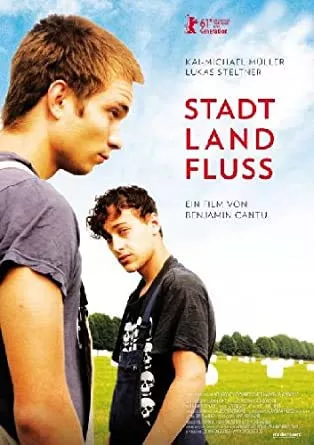
Harvest (2011): The Silent Dialogue Between Land and Identity
In the pastoral landscapes south of Berlin, two young farmhands—Marko and Jakob—navigate the practicalities of rural life. They master tractor operations, interpret bovine behavior, and maintain composure amidst life’s uncertainties. Yet no agricultural manual prepares them for their most profound challenge: confronting their own identities when self-awareness remains elusive.
This cinematic work doesn’t demand emotional engagement through overt manipulation. Absent are forced laughter, contrived tears, or manufactured triumphs. Instead, Harvest exists with quiet authenticity, compelling viewers through its unassuming realism until the final frame.
Unspoken Truths in Rural Silence
The deliberate pacing serves as the film’s narrative foundation. Meaning emerges through subtlety—a fleeting gaze, an accidental touch, weighted pauses. A simple admission of uncertainty resonates more powerfully than any scripted soliloquy.
Marko embodies restrained tension, while newcomer Jakob—displaced yet courageous—poses the pivotal question: “Why the silence?” Their connection unfolds organically, devoid of cinematic tropes like dramatic embraces or theatrical declarations. The raw authenticity strikes with visceral impact.
Subverting Expectations Through Agricultural Realism
For those anticipating conventional LGBTQ+ narratives, Harvest delivers an earthy departure. Director Benjamin Cantu crafts an observational study rather than a performative piece. The absence of swelling scores and exaggerated emotion leaves space for perspiration, hesitation, and the profound eloquence of wordless moments.
Notable Dialogues
Profound:
“Ich weiß es nicht.” (“I don’t know.”)
This trifold admission encapsulates Marko’s existential paralysis—his struggle with decisions, trust, and progress.
Lighthearted:
“Boah, ist dreig echt denke ichig – kommt nur von Arbeit.” (“Damn, I’m sweaty as hell—must be all the work.”)
Amidst soil and sweat, their attempted emotional detachment manifests visibly in every expression.
Enduring Resonance
Harvest functions as contemplative cinema—documentary-like in its restraint, yet pulsating with quiet emotional depth. It provides no grand revelations, but rather prompts introspection: What truths might emerge if we all expressed our authentic selves without reservation?

